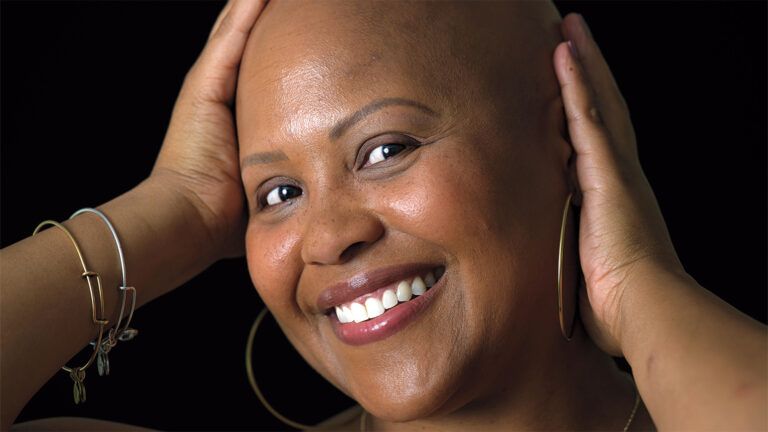Entering month seven of the coronavirus pandemic, I find myself frequently thinking about the Covid-19 “long haulers”—those folks who continue to suffer frightening virus-related symptoms long after an initial diagnosis. Shortness of breath. Tightness in the chest. Fatigue. Achy joints. Foggy thinking. Doctors are monitoring patients, but there is not yet enough conclusive data on the long-term, potentially chronic, effects of Covid-19.
I’m not a medical professional, but I do have experience living with chronic illness. In 2014, I suffered an outburst of radiating joint pain. For weeks, months, and then more than a year, I struggled without answers. Finally, in late 2015, I was diagnosed with Hypermobile Ehlers-Danlos Syndrome (EDS), a chronic illness that affects connective tissues. Six years later, I have some advice for the Covid-19 long hauler on how to live—and even thrive! —despite having a chronic condition.
1. Listen to Your Body
Listening to my body without judgement is something I learned in yoga, but I’ve had great success applying it to my symptoms. I started to ask myself, How does my body feel at different times of day? After different exercises? After consuming new foods? After a month of questioning, I realized that I felt a lot worse after eating a slice of pizza than I did after eating a slice of apple.
I did some research, and realized foods that hurt my joints tended to be highly inflammatory. I experimented, and cut out sugar, wheat, dairy, red meat, and nightshade vegetables until I found a diet that helped limit my pain. After a year on this strict diet, with enormous improvements in my pain levels, I was able to reintroduce certain food groups.
2. Tell Your Loved Ones
Nobody wants to look weak or sick, but it’s a good idea to tell the people in your life about your chronic condition. You don’t have to listen to everyone’s opinion, (“Have you tried X? What about Y?”), but your loved ones do want to help, whether that means picking up groceries or assisting in childcare.
For me, help came in the form of a friend I’d met abroad, who was then a medical student. I went to visit her in Rhode Island, and while having lunch, she said, “We had class with a woman who has something called Ehlers-Danlos Syndrome; her symptoms sound just like yours.”
If I’d kept my symptoms to myself, I’d never have known to visit a rheumatologist and to discuss EDS. Obviously, not all of us are lucky enough to have brilliant doctor friends, but opening up is the first step to accepting community support. Don’t be ashamed to share.
3. Create Positive Rituals
In the throes of my worst pain, I woke up every morning—and forced myself to exercise. This helped me focus and ground myself. I’ve heard of others lighting candles, finding a specific time of day to pray, or making dinner every night. Whatever it is, rituals continue to give our lives meaning, especially when everything else feels out of control.
4. Don’t Focus on the Worst Case Scenario
It’s easy to dwell in doubt, and preparing for the worst can make you feel like you are being a responsible adult. However, multiple studies have shown that thinking positively can help healing. Have wild expectations and big dreams for yourself!
I remember forcing myself to think, I’m going to be a miracle of healing, and later, I kind of was. Once I started imagining a life for myself that went beyond fear of suffering, beyond what doctors warned could be my future, beyond the daily pain, my body took note. It’s easier to heal if you assume success.
5. Go to Therapy
I know, I know. Not everyone loves sitting down and sharing your deepest thoughts with a stranger, but talking through your illness can be very useful. For me, seeing a therapist helped me work through certain limiting fears about illness. It’s easy to get trapped in the cycle of, What if I’m like this forever? What if I can’t do what I used to do? Not only will those fears consume your day, but they’ll limit your belief in yourself. Talk to someone who can help you gain perspective and stay optimistic.




